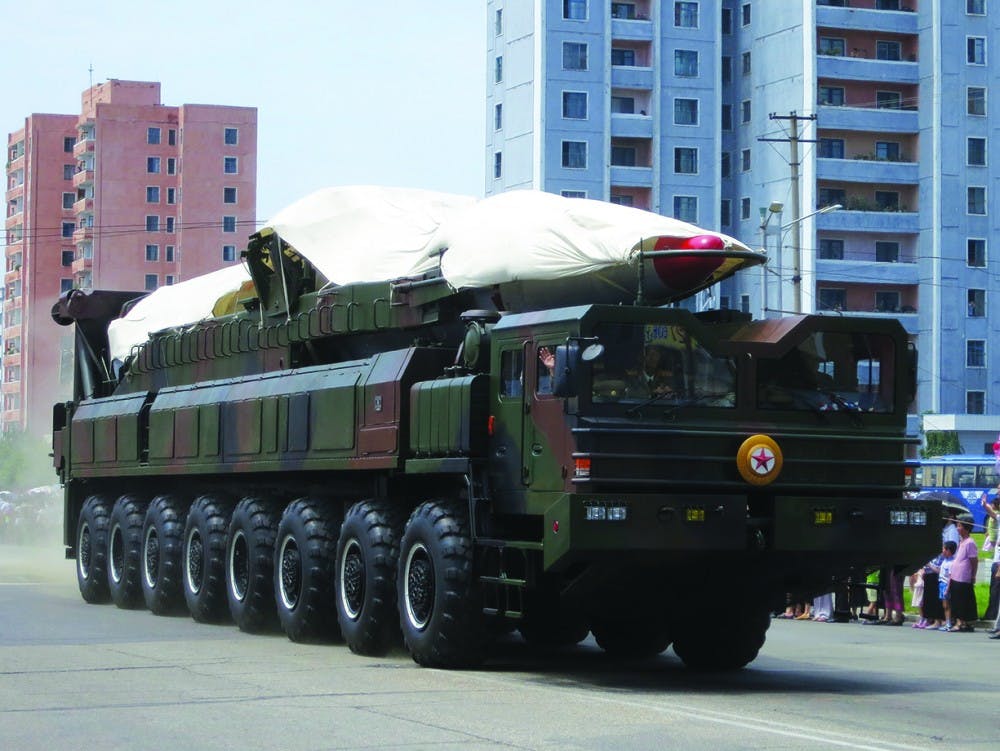Here we go again. It seems every couple of years North Korea is in the headlines making threats to use nuclear weapons when they are pushed too far by the United States. A common theme running throughout the issue is the inability of the U.S. to deal with the problem North Korea presents to the world. If North Korea is able to fit a nuclear weapon on a missile with the capability to strike the United States or its allies, then at what point does the international community say enough is enough? The question may be more complex than that.
The previous three administrations have not been able to effectively deal with the Hermit Kingdom, as North Korea is sometimes called. A conventional preemptive military strike is not on the table at this time, according to Politico. This may only be posturing by the Trump administration as it attempts to work out a sound military strategy. Only time will tell what his team will decide to do militarily. Direct economic sanctions on North Korea and official protests in the United Nations in the past have been superficial and accomplished nothing. If the U.S. and its allies wish to affect change, then they need to approach it from another angle.
For far too long, China has propped up its wayward cousin in an attempt to create a buffer state between the U.S. aligned South Korea and itself. The U.S. and its allies need to make it perfectly clear this will no longer be tolerated and take action against the Chinese. Establishing relations with the Republic of China (ROC) once more and creating both economic and military ties is an important first step. Currently inhabiting the island of Taiwan off the coast of mainland China, the ROC has been in a standoff with the People’s Republic of China (PRC) since the late 1940s. Diplomatic relations with the ROC were terminated in 1979 when the U.S. instead recognized the PRC as the sole entity representing China. Recognizing the ROC will show the PRC the U.S. can diversify its overseas economic affairs, instead of keeping the PRC as the largest trading partner. Ultimately this will put pressure on the Chinese to reconsider their relationship with North Korea.
Another way of dealing with China is to enforce harsher economic sanctions in order to ultimately lead it to distance itself or even cut ties with North Korea. According to the Observatory for Economic Complexity run by MIT, the PRC is North Korea’s largest trading partner with more than 83 percent of all exports going to China. If that trade was made to seem unattractive to Beijing, then the Chinese might reevaluate their position with North Korea. Enacting legislation in Congress and convincing other nations to create similar penalties in their respective countries would balance the scales when trading with the PRC. In turn, this would limit their overall trading power globally. The PRC needs to ultimately recognize it does the Chinese people more harm than good economically to protect North Korea as they have for the past 50 years.
The U.S. also needs to build a coalition of nations — much like George H.W. Bush did during the First Gulf War — to effectively deal with North Korea. Arming key allies in the region, such as Japan and South Korea, against nuclear attack is already underway, according to CNN. Ultimately, a plan should be made regarding how the nuclear weapons in the North should be dealt with and how to properly dispose of them. The U.S. cannot proceed alone; the U.S. can no longer afford to be the world’s sole policemen. Instead, it needs to be willing to take a leadership role in guiding its allies to take part.
Trump was elected as a businessman who excels at convincing others. He needs to be able to convince our allies and China it is in their best interest to challenge North Korea or he will be like every president before him. The only way this will be solved is if all democratic nations recognize the threat and come together to stop the atrocities being committed by North Korea.


The Slate welcomes thoughtful discussion on all of our stories, but please keep comments civil and on-topic. Read our full guidelines here.